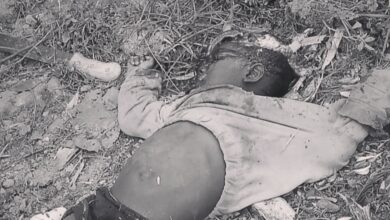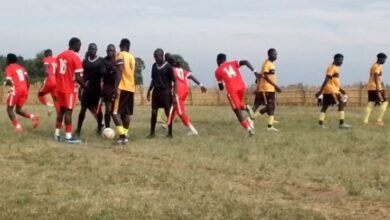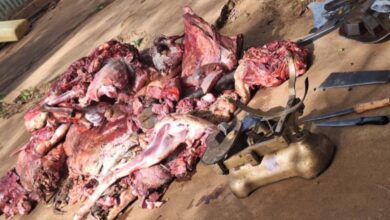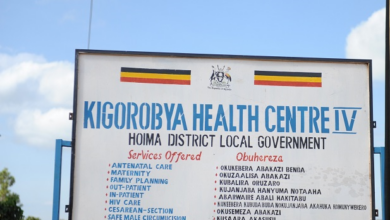Ray of hope as human trafficking survivors get skilled
Survivors who completed skilling in different fields were given startup kits and warned against selling them.
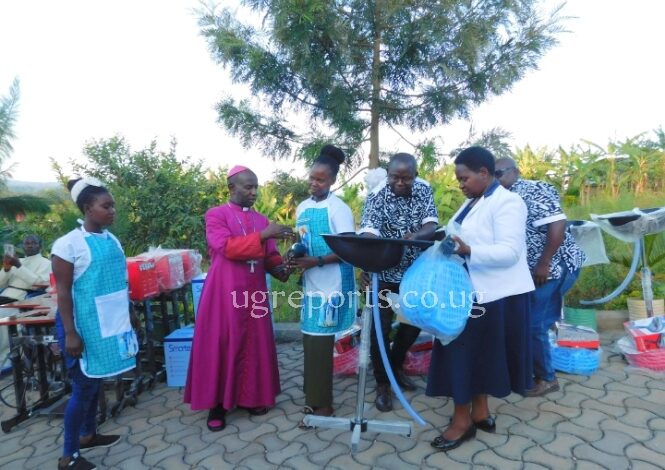
Fort Portal: The Sisters of the Holy Cross Peace, Justice, and Rehabilitation Center has given hope to the survivors of human trafficking by rehabilitating and skilling them.
According to the director of the of the Sisters of the Holy Cross Peace, Justice, and Rehabilitation Center, Rev. Sr. Semerita Mbambu, they have so far rehabilitated and trained more than 500 human traffickers.
She said that in the Rwenzori subregion, there are many cases of human trafficking for both females and males who are trafficked to other countries after being promised good-paying jobs.
“Human trafficking is a big issue in our region. We have so far rescued over 500 people since 2019, and the majority of these are women. We identify, rescue, rehabilitate, skill, and reintegrate the survivors of human trafficking within this diocese and beyond,” Sr. Mbambu said.
She said that because of the increasing cases of human trafficking in the region, they are always overwhelmed by the large number of survivors who need to be rehabilitated, but unfortunately, they don’t have enough resources nor do they have enough space for rehabilitation.
She was speaking during the pass out of 20 survivors who completed skills in hairdressing, tailoring, baking, cookery, and shoemaking, among others.
The event took place at the rehabilitation center in Kitumba, Fort Portal City, recently.
Survivors who completed skilling in different fields were given startup kits and warned against selling them.
“We have given you these kits to go and start from there. Let me warn you: don’t sell them! We have marked them, and when we find out that you have sold them, we will arrest you and you will return them. Its unfortunate that some of your colleagues who completed before you sold them went back abroad,” she said.
Sr. Mbambu stressed that despite what many people are going through when they go abroad for jobs, more are still going there, and some who were rescued, rehabilitated, and skilled went back.
She called upon all victims of human trafficking to use the skills they have and the startup kits given to them to create their own jobs to avoid going back abroad for better jobs.
“It is still a challenge that some survivors of human trafficking, after being rescued and skilled, go back to those countries where they had been enslaved instead of utilizing the skills given and the startup kits that they receive after the skilling program,” she said.
The Bishop of Fort Portal Catholic Diocese, Rt. Rev. Dr. Robert Muhiirwa, has appealed to the youth to embrace vocational skills to get out of poverty and avoid being lured to Arab countries in search of jobs.
Bishop Muhiirwa said cases of human trafficking both within and outside Uganda have increased due to unemployment.
“Going to other countries like the United Arab Emirates is not the solution to unemployment. Many Ugandans have been trafficked, especially women, in the name of being given jobs. Since the government’s approach to reducing unemployment is through skilling, youth need to embrace it,” Bishop Muhiirwa said.
He added that with a skill, someone cannot go on the streets looking for jobs because they already have the skill to create their own jobs and only need start-up capital.
“We are aware of some cases reported about those who have been killed, tortured, or sexually abused in Arab countries when they are taken to work as housemaids, among other jobs. There are also cases of slavery reported by those who go abroad for kyeyo. Our children are suffering, but still more are going, and others still want to go,” Bishop Mihiirwa said.
He said some cases have been reported to the government, but they have been lured for good jobs and good money, but unfortunately they end up in misery and enslaved.
The 2021 Uganda Human Rights Commission report indicated that a total of 1,295 persons were victims of trafficking, out of whom 790 were victims of transnational trafficking, 475 were victims of internal trafficking, and 30 victims were unknown.
The same report shows that a total of 713 victims were female adults, 285 were female juveniles, and 86 were male juveniles, while 181 were male adults.
The most common forms of exploitation for victims of trafficking in persons include sexual, where 117 cases were registered; labor, 94; forced marriage, 47; illegal activity, 19; and debt bondage, 5.
Do you have an advertisement or article you want to publish? Mail us at theugreports@gmail.com or WhatsApp +256757022363.


